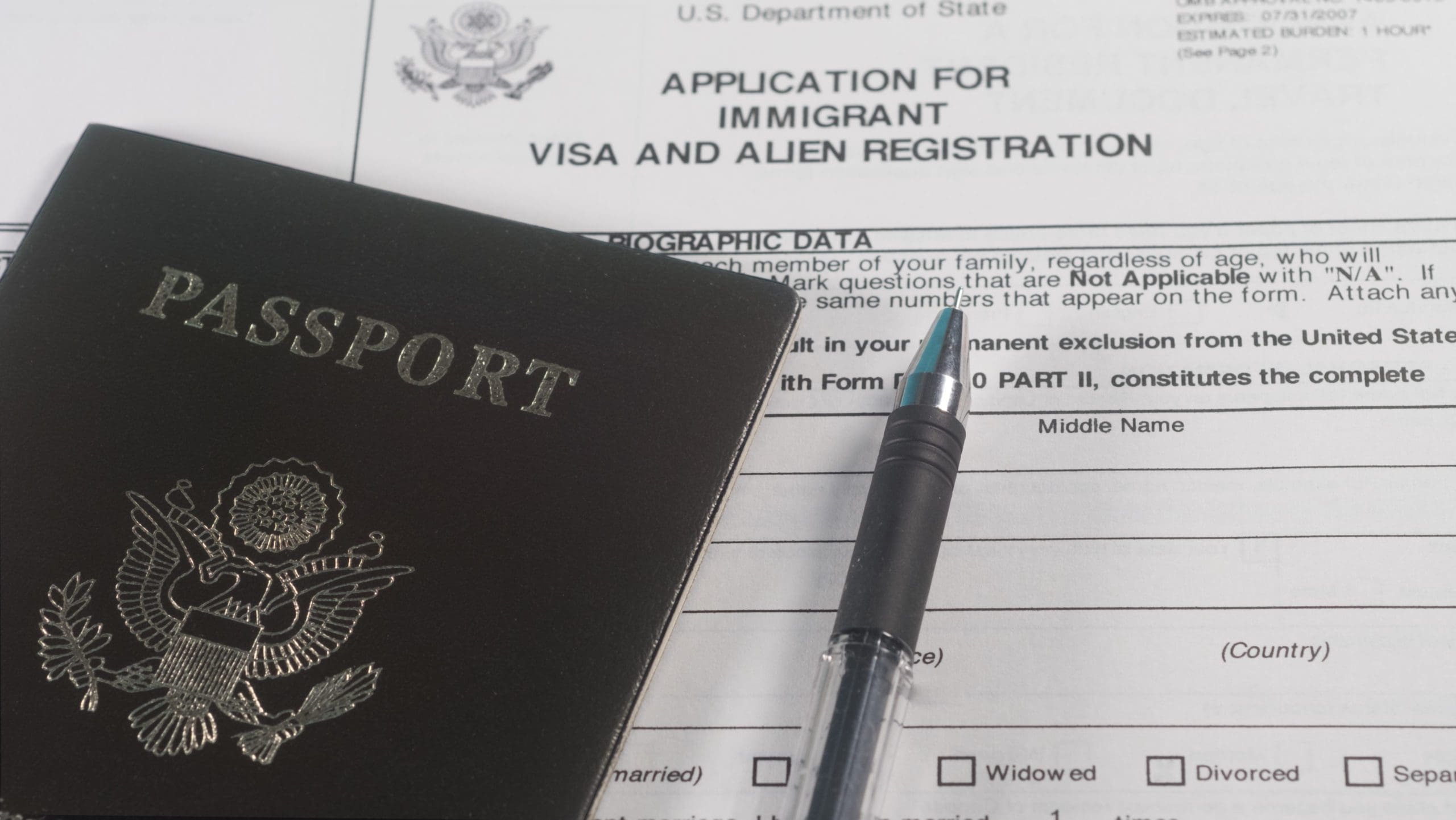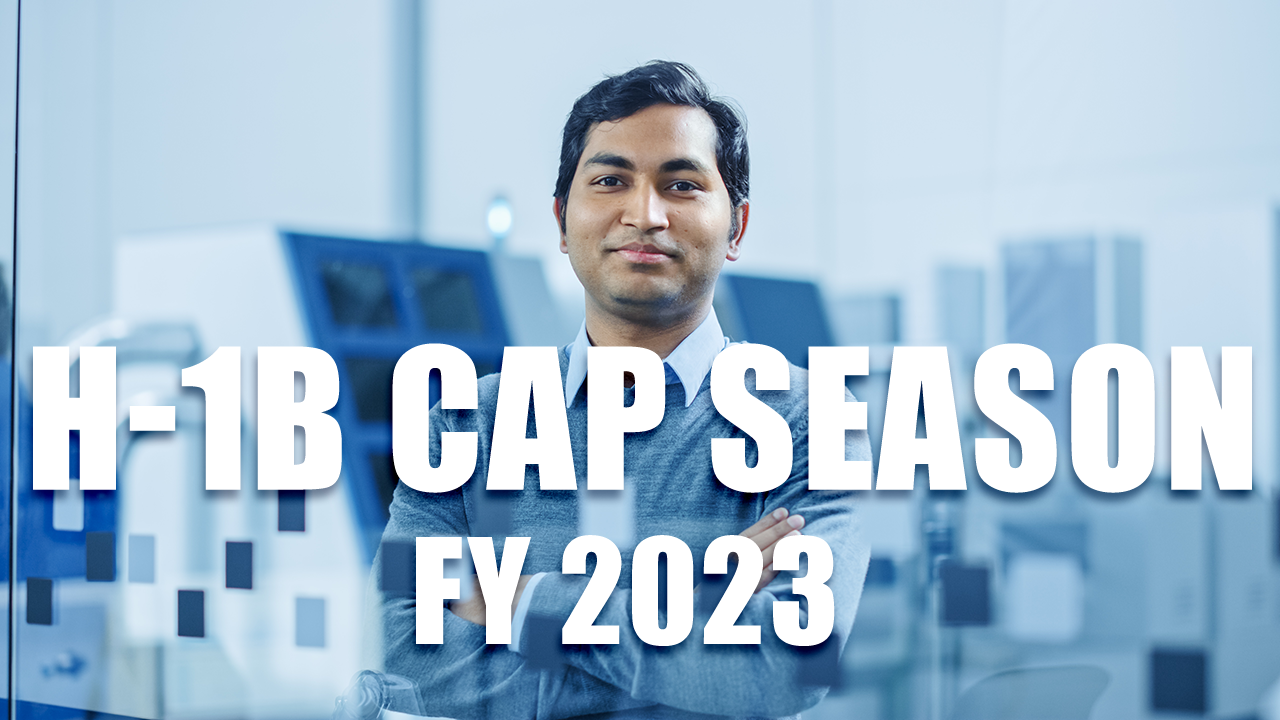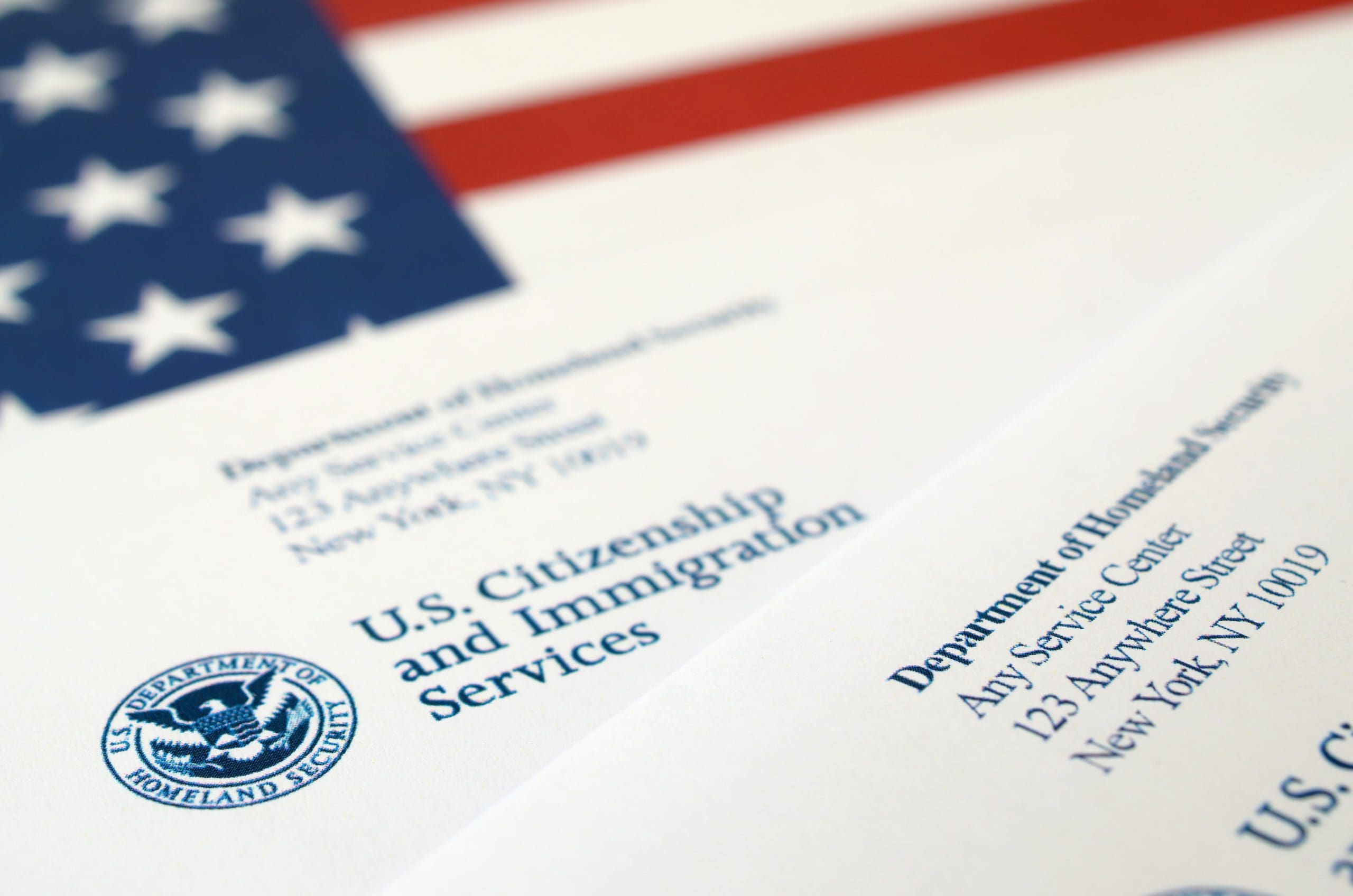The H-1B Cap is the maximum number of H-1B visas issued in a fiscal year. The Master's Cap is the maximum number of H-1B visas that can be issued to individuals who have obtained a master's degree or higher from a U.S. institution of higher education.
H-1B petitions filed under the Regular Cap and the Master's Cap will be subject to the same random selection process (lottery). U.S. Citizenship and Immigration Services (USCIS) will only select enough petitions to reach the respective caps. If more than enough petitions are received to reach either cap, a lottery will be conducted to select the required number of petitions randomly.

Application for immigrant visa and Alien Registration form and passport with pen
H-1B Registration
USCIS has released its H-1B Cap Season updates for FY 2023. The received electronic registrations during the initial registration period have reached the fiscal year (FY) 2023 H-1B numerical allocations (H-1B cap), including the advanced degree exemption (master's cap). USCIS randomly selects from among the registrations correctly submitted to reach the cap. USCIS has notified all prospective petitioners with selected registrations that they are eligible to file an H-1B cap-subject petition for the beneficiary named in the applicable selected registration.
If selected to file an H-1B petition, USCIS will send you a notification letter. The letter will provide information on how to file the H-1B petition. Registrants' online accounts will now show one of the following statuses for each registration (that is, for each beneficiary registered):
- Submitted: After the initial selection process has been completed, a registration status may display "Submitted." Until the end of the fiscal year, all registration statuses will be Selected, Not Selected, or Denied.
- Selected: This means that the registrant is eligible to file an H-1B cap-subject petition.
- Denied: The same registrant submitted a duplicate registration for the same beneficiary, or a payment method was declined and not reconciled.
- Invalidated-Failed Payment: After submitting your payment, it was declined, rejected, disputed, or canceled.

FY 2023 H-1B Cap Petitions
The regular H-1B visa cap dedicates 65,000 petitions to foreign workers with the required skills and qualifications. USCIS allots an additional 20,000 petitions to individuals holding advanced degrees at a master's level or beyond.
H-1B cap-subject petitions for FY 2023, including those petitions eligible for the advanced degree exemption, may be filed with USCIS beginning in April. Only petitioners with selected registrations may file H-1B cap-subject petitions, and only for the beneficiary named in the applicable selected registration notice.
If you are not selected in the initial selection process or if your case is denied, you may file an H-1B cap-subject petition on behalf of the same beneficiary during the regular filing period.
In order to file an H-1B cap-subject petition, you must include a printed copy of the applicable registration selection notice with the petition. USCIS will use the notice to confirm that you are registered for the fiscal year and have not filed more than one duplicate registration for the same beneficiary.
An H-1B cap-subject petition must be filed appropriately with the correct service center and within the filing period indicated on the relevant registration selection notice. The period for filing the H-1B cap-subject petition will be at least 90 days.
USCIS will only approve the petition if the Beneficiary named in the registration selection notice has been determined to be eligible for the H-1B cap at the time of filing and through adjudication.
As of April, petitioners filing H-1B cap-subject petitions, including those petitions eligible for the advanced degree exemption, must still establish eligibility for petition approval at the time the petition is filed, based on existing statutory and regulatory requirements.

Envelopes with letter from USCIS on United States flag from Department of Homeland Security close up
Mailer Suspension
Pre-paid mailers will not be used to send out any communication or final notices for the fiscal year 2023 cap-subject H-1B petitions, including those requesting consideration under the advanced degree exemption. Petitioners must now use first-class mail when sending these forms. This suspension is because the existing automated process is more time-efficient for petitioners and USCIS.
When using a first-class mail process, all cap-subject petitions will be timely, ensuring that all interested parties have an equal opportunity to receive notification of their selection.

Receipt Notice Delays
When we get a timely and appropriately submitted H-1B cap-subject petition, the petitioner (and, if relevant, the petitioner's legal representative) will receive a Form I-797, Notice of Action, informing them that the petition has been received.
Because H-1B cap filing periods typically see a more significant number of filings, there are times when a petition is submitted on time and correctly, but Form I-797 is not issued immediately.
Suppose a petitioner gets confirmation from the delivery service that the petition was delivered but has not yet received a Form I-797 acknowledging receipt of the petition. In that case, they should not submit another petition.
If a petitioner obtains confirmation from the delivery service that the petition was delivered and then submitted a second petition, both will be considered duplicate submissions. Denial or revocation of both petitions would follow.
Visit the USCIS Contact Center for assistance if more than 30 days have passed since the confirmation of delivery and the petitioner has still not received a Form I-797.
